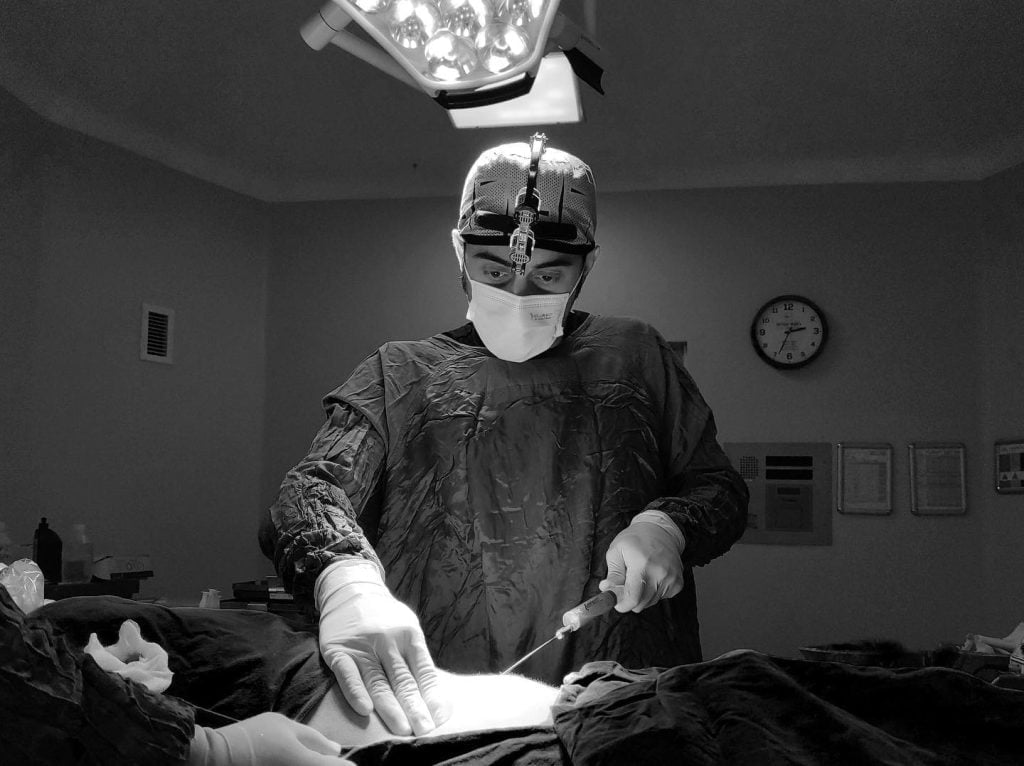So you’ve just had Facial Feminization Surgery (FFS), and you’re itching to get back to your life, travel included! But hold on a minute – just like any other surgery, FFS needs time to heal. And while you’re probably dreaming of beaches and adventures, your body needs to recover before you take to the skies. So, how soon can you fly after FFS?
This blog post is your guide to navigating the post-surgery travel scene. We’ll dive into the typical recovery process, explore factors that impact healing time, and discuss the potential restrictions you might encounter when flying. Remember, this information is for general guidance. For personalized advice, always consult your surgeon, they are your true north in this journey!

Table of Contents
The Recovery Process After Facial Feminization Surgery
Imagine your face as a delicate work of art – it needs time to settle and heal after surgery. The recovery process after FFS is typically divided into phases:
Phase 1: The Early Days (First Few Weeks)
This is the most sensitive time. Swelling and bruising are your biggest companions. You’ll be sporting bandages and probably feeling a bit tender. It’s crucial to rest, keep your head elevated, and follow your surgeon’s instructions. They’ll be your lifeline for managing pain and taking care of your surgical site. Think of it as a period of intense pampering, a chance for your body to focus on healing.
Phase 2: The Transition Phase (Weeks 2-4)
You’ll start to notice a decrease in swelling and bruising. You’ll be able to shed some of the bandages and your face will begin to regain its shape. You might still experience discomfort, but you’ll be able to manage it more effectively. It’s a time to be patient and enjoy the gradual improvements, knowing you’re making great progress.
Phase 3: The Healing Stage (Months 3-6+)
This is when the real magic happens! Your face continues to heal, and the final results become more apparent. The swelling will subside further, and you’ll start to feel like yourself again. You’ll notice your new features blending in, and you’ll probably be feeling a surge of confidence.
Factors Affecting Recovery Time
So, when can you start thinking about flying again? This is where things get a little individualistic. Recovery times can vary depending on a few key factors:
- Your Personal Health: If you’re generally healthy and have a good immune system, your healing journey will likely be smoother.
- The Extent of Surgery: More extensive procedures naturally take longer to heal. Your surgeon will guide you on the specifics of your case.
- Post-Op Care: Adhering to your surgeon’s instructions, like taking your medications as prescribed and keeping your incisions clean, can significantly impact your healing time.
- Potential Complications: Everyone’s body is different, and sometimes things don’t go perfectly smoothly. If you experience any complications, it might affect your recovery timeline.
Specific Travel Restrictions
While you’re eager to explore the world, there are a few things to consider before booking that flight:
Altitude: Flying at high altitudes can cause pressure changes that might affect your healing tissues. It’s generally recommended to avoid flying for a while after FFS, especially in the first few weeks when swelling is significant.
Cabin Pressure: Cabin pressure changes during flight can affect wound healing and potentially increase the risk of complications. It’s best to avoid flying until your surgeon gives the all-clear.
Blood Clotting Risks: Sitting for long periods on a plane can increase the risk of blood clots. Your surgeon might recommend wearing compression stockings during travel, especially if you have other risk factors.
Tips for Safe Air Travel After FFS
Okay, you’ve got the green light from your surgeon to fly! Here’s how to make your journey as comfortable and safe as possible:
- Hydrate, Hydrate, Hydrate: Water is your best friend! Staying hydrated helps with swelling and overall recovery. Bring a reusable water bottle and sip frequently during your flight.
- Compression Stockings: Talk to your surgeon about whether compression stockings are recommended for your specific situation. They can help with circulation and reduce the risk of blood clots.
- Travel Pillow: A neck pillow can help support your head and keep it elevated, reducing swelling and discomfort.
- Bring Your Medications: Make sure to pack all necessary medications and keep them in easy access.
- Keep it Comfortable: Dress in loose-fitting, breathable clothes. You’ll probably be more comfortable if you avoid anything that restricts your movement or irritates your surgical areas.

Conclusion
Remember, you are not alone in this journey. Your surgeon is your partner in recovery. It’s crucial to follow their instructions, be patient with your body, and prioritize your well-being. And while you might have to delay that long-awaited vacation, remember that traveling safely and comfortably is the ultimate goal. So, listen to your body, talk to your surgeon, and plan your trips with a clear mind and a well-rested face!
How soon can I fly after FFS? It’s a question many of us have after surgery. Remember, there’s no one-size-fits-all answer. Your surgeon holds the key to this question, so consult them for personalized advice and enjoy the journey to your best self!

Visit Dr.MFO Instagram profile to see real patient transformations! Get a glimpse of the incredible results achieved through facial feminization surgery and other procedures. The profile showcases before-and-after photos that highlight Dr. MFO’s expertise and artistic vision in creating natural-looking, beautiful outcomes.
Ready to take the next step in your journey? Schedule a free consultation with Dr. MFO today. During the consultation, you can discuss your goals, ask any questions you may have, and learn more about how Dr. MFO can help you achieve your desired look. Don’t hesitate to take advantage of this free opportunity to explore your options and see if Dr. MFO is the right fit for you.




